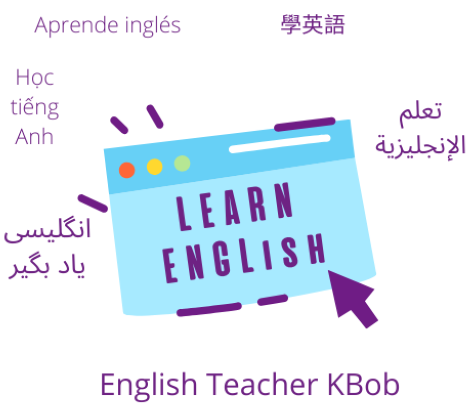Discover the best free resources and strategies for adults to learn English online. This guide offers practical tips, tools, and lessons to help you master English at no cost, whether you’re a beginner or looking to improve your skills.
Learning English online for free as an adult opens up a world of possibilities. Whether it’s for career advancement, travel, or personal growth, the benefits are endless. With the abundance of free resources available, you can tailor your learning journey to fit your needs and schedule.

This guide is packed with valuable tips and strategies to help you navigate the best free resources and make the most out of your online learning experience. No need to spend a lot of money on expensive courses or textbooks—everything you need is right at your fingertips.
However, if you need extra help, you may need to pay for that.
Designed specifically for adults, this guide caters to learners at all levels. Whether you’re just starting out or looking to brush up on your skills, there’s something here for you. From setting clear goals to finding the best online resources, you’ll get the guidance you need to succeed.
The Parts Of An English Class
There are four main parts to an English class.
Many school districts offer free English as a second language (ESL) classes.
I currently teach in a school district that offers free ESL classes. I’ve been doing it for many years.
Whether you take a class or go about learning on your own, it’s important that you spend time on the four main parts:
- Reading
- Writing
- Listening
- Speaking
Embedded within the four parts are three other elements:
- Vocabulary
- Grammar
- Pronunciation
However, regardless of how or where you learn what you learn, the element of learning that is absolutely indispensable:
Practice, Practice, Practice constantly and continually!
Practice is the secret sauce that drives all learning. If you don’t put into practice what you learn and do it as soon as possible, you will not retain what you learn and you will not move forward.
True learning is not only about who teaches you, whether you receive the learning for free or you pay for it. True learning is about putting what you learn into practice and continuing to practice.
Essential Strategies for Learning English Online
Set Clear Goals: It’s important to know why you’re learning English. Maybe it’s for a job, travel, or personal interest. Whatever the reason, set realistic and achievable goals. For example, aim to learn ten new words a week or master basic conversations within a month. Tangible goals keep you motivated and on track.
Create a Study Schedule: Consistency really matters. Blocking out specific times during the day or week ensures that you’re making regular progress. Find a time that fits best into your daily routine and stick to it. Maybe it’s early mornings or just before bed. Having a set schedule helps make learning a habit.
Start with the Basics: Lay a strong foundation by mastering greetings, essential vocabulary, and basic grammar. Don’t rush through this part. Understanding these basics makes it easier when you move on to more advanced topics. Think about it as building blocks that support your future learning.
Engage in Active Learning: Passive learning won’t cut it. Take notes while you study, repeat new words and phrases aloud, and try to use what you’ve learned in your daily life. Online language exchange platforms or forums are great places to practice with others. The more you actively engage, the better and faster you’ll learn.
Top Free Online Resources for Learning English
Websites offer a treasure trove of free lessons. A great place to start is right here at https://englishteacherkbob.com. It’s packed with well-structured lessons tailored for adults. Other reputable sites like BBC Learning English and USA Learns are also excellent options. They cover everything from basic grammar to more advanced topics.
YouTube channels are another fantastic resource. Channels like EnglishAddict with Mr. Duncan and Learn English with EnglishClass101 provide engaging tutorials for free. The videos are fun and cater to different learning styles, so you can find something that works for you.
Apps are perfect for learning on the go. Duolingo, Memrise, and HelloTalk are popular choices. These apps offer interactive exercises that make learning fun and effective. Plus, they’re mobile-friendly, so you can practice anytime, anywhere.
Online communities and forums are great for practice and support. Joining Facebook groups, Reddit communities, or language exchange platforms lets you connect with other learners and native speakers. It’s a handy way to get real-world practice and gain confidence in your skills.
Tips for Maximizing Free Online Learning
Take advantage of multimedia content to enrich your learning experience. Videos, podcasts, and articles provide various ways to understand and practice English. Mix and match these resources to keep your study sessions fresh and engaging.
Mix different resources to avoid boredom and reinforce learning. Combining apps, websites, and conversation practice helps you cover all bases. Using varied methods keeps your brain engaged and prevents burnout.
Track your progress. Whether you prefer a notebook or digital tools, keeping tabs on new vocabulary, grammar points, and milestones is crucial. You’ll get a sense of achievement and know what areas need more focus.
Stay motivated. Find a language partner online through free platforms like Tandem or ConversationExchange. Practicing with someone keeps you accountable. Celebrate small wins, like mastering a new phrase or completing a lesson, and remember that consistency leads to improvement.
Do you know how to properly type on a computer keyboard? I’m not talking about the hunt and peck method you probably use on your phone. I’m talking about knowing where to put your fingers, learning the keyboard and being able to type without looking at the keyboard.
If you’re interested in learning to do that, here’s another tip for you. You can learn for free online but it will take time. It will help you in the long run in many ways.
Go to typing.com, create a free account and follow the directions. The blue hand and fingers are your guide. Be careful not to click on the many ads. Make sure it always says Typing.com in the upper left hand corner of your screen.
Here’s The Bottom Line
If you’re truly committed to learning English and you want to know how long it will realistically take for you to become fluent in English, look at the chart below.
English Fluency Commitment Chart
| Learning Activity | Expected Outcome (Fluency Timeline) | Age Group Estimation (Time to Fluency) |
|---|
| Learn 1-3 new things each day | 2-5 years with consistent practice | Young people (under 20): 2 years |
| Work with English-speaking people | Accelerates fluency, especially if practiced daily | People aged 20-30: 3-4 years |
| Dedicate at least 1 hour a day to learning/studying | Essential for steady progress and retention | All age groups benefit equally from this practice |
| Practice speaking English in everyday situations | Significantly improves speaking and listening skills | People over 30: 4-5 years |
| Practice with a partner at least once a week | Enhances speaking and comprehension skills | All age groups benefit equally, but younger learners may progress faster |
| Read at least 500 words in English daily | Boosts vocabulary and reading comprehension | All age groups benefit equally, but younger learners may absorb vocabulary faster |
| Write a complete paragraph in English every day | Improves writing skills and sentence structure | All age groups benefit equally, but writing can be more challenging for older learners |
| Listen to radio, TV, podcasts, etc. in English for at least 10 minutes a day | Improves listening comprehension and pronunciation | All age groups benefit, but listening skills develop more quickly in younger learners |
Of course, everyone is different and there is no way to guarantee how long it will take for you.
Your age has something to do with how long it will probably take.
People younger than 20 usually learn quicker if they apply themselves. Generally, the older someone is when they begin trying to learn a language, the longer it takes and the more difficult it is for someone, although there are always exceptions to the rule.
I’ve seen young people really struggle and I’ve seen older people who learn very quickly.
However, based on my experience as an adult ESL teacher who works with adult ESL students all the time and has for several years, I feel comfortable in saying that if you follow what the table says 95-100% of the time and do all of it, not just some or most of it, I believe you will achieve fluency in 2-5 years.
For most people:
If you are younger than 20, you are more likely to achieve fluency in about 2 years.
If you are between 20 and 30, it will likely take you a little longer, probably about 3 years.
If you are over 30, it will likely take you closer to 4 years.
If you are over 40, it will probably take you at least 5 years.
I know you can learn if you really want to learn and are willing to do what it takes to learn.
I’m here to help.
Leave comments and questions in the comments section below.

